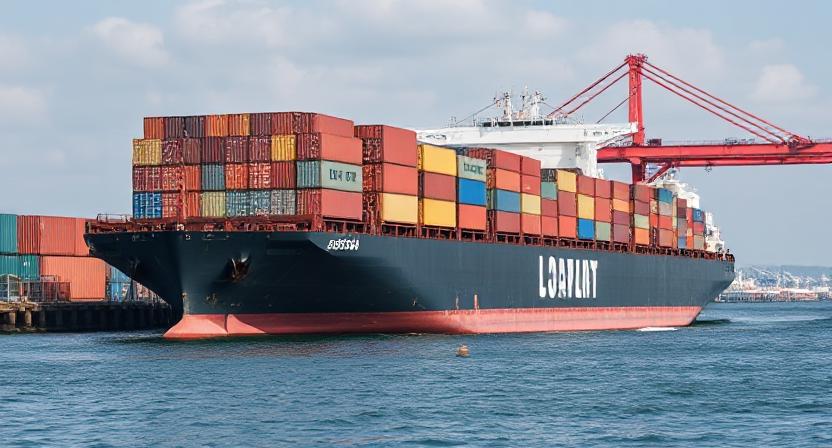The Iran Strait of Hormuz is back in the headlines. After recent U.S. airstrikes on Iran’s nuclear sites, tensions are rising fast. Iran’s government has responded with strong threats, including a possible shutdown of the Strait of Hormuz.
This waterway is one of the most important routes for oil shipping. If closed, it could disrupt energy markets around the world. In this post, we break down what’s happening, why it matters, and what it means for the U.S. and global economy.

What Is the Iran Strait of Hormuz?
The Iran Strait of Hormuz is a narrow stretch of water between Iran and Oman. It links the Persian Gulf to the Arabian Sea. The Strait is just 21 miles wide at its narrowest point. It is one of the most important shipping lanes on the planet.
About 20% of the world’s oil passes through this Strait every day. That’s nearly 18 million barrels of oil. Oil tankers use this route to deliver fuel from countries like Saudi Arabia, Iraq, and Kuwait to global markets.
The Strait is small but powerful. A single event here can affect fuel prices in the U.S., Europe, and Asia. That’s why this route is always under close watch.
Why Is Iran Threatening to Close It?
The crisis began when the U.S. launched airstrikes on Iran’s nuclear facilities. The targets included sites in Fordow, Natanz, and Isfahan. These were major parts of Iran’s nuclear program. Iran has said its uranium enrichment capacity was destroyed.
In response, Iran’s parliament voted to close the Iran Strait of Hormuz. This vote still needs final approval from Iran’s Supreme National Security Council. But the message is clear: Iran wants to send a strong warning.
Shutting the Strait would be a bold move. It would not only hurt U.S. allies but could also hurt Iran’s economy. Still, Iran may be using this threat to pressure the U.S. and Israel after the recent attacks.
What Happens If the Strait Closes?
If Iran closes the Iran Strait of Hormuz, the impact will be huge. Oil shipments from the Gulf would stop or slow down. That could send oil prices soaring overnight.
Here’s what could happen:
- Global oil prices rise fast
- Gas prices go up across the U.S.
- Shipping delays affect trade
- Stock markets drop due to panic
- Military tension increases in the Gulf
Even a partial blockade could shake up markets. Tanker ships would need to reroute, which costs time and money. Insurance rates for shipping would rise. This would hit consumers everywhere.
U.S. and Allied Response
The U.S. Navy is already active in the region. The Fifth Fleet is based in Bahrain and monitors Gulf waters. Navy ships are now watching for any signs of action near the Iran Strait of Hormuz.
President Biden has warned Iran against blocking the Strait. The U.S. is also speaking with China, asking them to urge Iran to step back. European allies are keeping a close eye on the situation.
So far, there’s no military clash at sea. But warships from the U.S. and other countries are on alert. Their main goal is to keep the Strait open for global shipping.
Can Iran Actually Close the Strait?
Iran has threatened to close the Iran Strait of Hormuz before. It has also run military drills in the area. The country has fast boats, sea mines, and missile systems. These tools could block or damage ships trying to pass.
But closing the Strait is risky for Iran too. A full blockade would:
- Hurt its own oil exports
- Damage relations with China and India
- Invite possible military action
- Increase global pressure on Iran
Experts say Iran may try to block traffic for short periods. It may use this as a scare tactic. But a long-term closure would likely backfire on Iran’s economy.
Economic Impact of a Closure
The Iran Strait of Hormuz is a lifeline for the oil industry. A closure would shake up energy markets around the world.
Here’s how it could affect the economy:
- Oil prices would spike
- Airlines would face higher fuel costs
- Trucking and shipping costs would rise
- Inflation could increase
- Businesses may cut spending due to high costs
In the U.S., gas prices would be the first to go up. People could see $5 to $7 per gallon prices at the pump if oil crosses $150 per barrel. This would hurt families, truck drivers, and small businesses.
Oil Market Reaction So Far
Oil prices have already gone up since the news of the U.S. strikes. Brent crude rose by $4 to $5 per barrel. Markets are now pricing in the risk of a major supply shock.
Traders are watching for signs of trouble. If ships stop moving or military action happens near the Strait, prices could rise more. Shipping companies are also watching closely.
The last time the Strait was threatened, in 2019, oil prices rose by 10% in a week. That gives us a clue about how serious this is.
How Are Other Countries Reacting?
Countries like China, India, and Japan rely on oil from the Persian Gulf. A disruption at the Iran Strait of Hormuz would hit them hard. China has asked Iran to avoid making moves that block global trade.
OPEC has not made a public statement yet. But members like Saudi Arabia and the UAE are worried. They want to keep the oil flowing and avoid more price hikes.
European countries are also speaking with Iran and the U.S., hoping to cool tensions before they lead to war or trade blocks.
What to Watch Next
Several things could happen in the next few days:
- Iran may or may not get final approval to close the Strait
- The U.S. may increase its naval forces in the Gulf
- Oil prices may spike again if tankers slow down
- Diplomatic talks may begin between Iran, the U.S., and others
- More airstrikes or a wider conflict could break out
The situation is changing fast. News from the Gulf could impact fuel prices, stock markets, and political decisions around the world.
Final Thoughts
The Iran Strait of Hormuz is not just a narrow waterway. It’s a vital part of global trade and energy supply. When it’s threatened, the whole world feels it.
The recent U.S. strikes on Iran have sparked a new fear of conflict. Iran’s talk of closing the Strait has made the oil market nervous. The U.S. and its allies are now trying to keep the peace while keeping ships moving.
For everyday people, the biggest concern is rising gas prices and inflation. For governments, it’s about avoiding war and keeping trade routes open.
The next steps are critical. Whether Iran acts or not, the threat itself shows just how important the Iran Strait of Hormuz remains in 2025.





